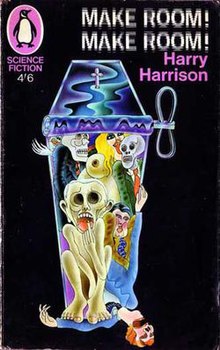Utopian and dystopian fiction are subgenres of science fiction that explore social and political structures. Utopian fiction portrays a setting that agrees with the author's ethos, having various attributes of another reality intended to appeal to readers. Dystopian fiction offers the opposite: the portrayal of a setting that completely disagrees with the author's ethos. Some novels combine both genres, often as a metaphor for the different directions humanity can take depending on its choices, ending up with one of two possible futures. Both utopias and dystopias are commonly found in science fiction and other types of speculative fiction.

Soylent Green is a 1973 American ecological dystopian thriller film directed by Richard Fleischer, and starring Charlton Heston, Leigh Taylor-Young, and Edward G. Robinson in his final film role. It is loosely based on the 1966 science-fiction novel Make Room! Make Room! by Harry Harrison, with a plot that combines elements of science fiction and a police procedural. The story follows a murder investigation in a dystopian future of dying oceans and year-round humidity caused by the greenhouse effect, with the resulting pollution, depleted resources, poverty, and overpopulation. In 1973, it won the Nebula Award for Best Dramatic Presentation and the Saturn Award for Best Science Fiction Film.

I, the Jury is the 1947 debut novel of American crime fiction writer Mickey Spillane, the first work to feature private investigator Mike Hammer.
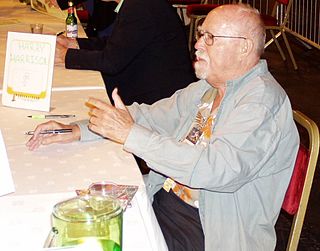
Harry Max Harrison was an American science fiction author, known mostly for his character The Stainless Steel Rat and for his novel Make Room! Make Room! (1966). The latter was the rough basis for the motion picture Soylent Green (1973). Long resident in both Ireland and the United Kingdom, Harrison was involved in the foundation of the Irish Science Fiction Association, and was, with Brian Aldiss, co-president of the Birmingham Science Fiction Group.
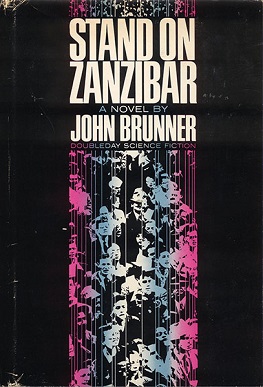
Stand on Zanzibar is a dystopian New Wave science fiction novel written by John Brunner and first published in 1968. The book won a Hugo Award for Best Novel at the 27th World Science Fiction Convention in 1969, as well as the 1969 BSFA Award and the 1973 Prix Tour-Apollo Award.

Bill, the Galactic Hero is a satirical science fiction novel by American writer Harry Harrison, first published in 1965. A novella length version appeared in the magazine Galaxy Science Fiction in 1964 under the name "The Starsloggers".
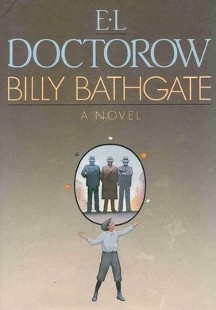
Billy Bathgate is a 1989 novel by author E. L. Doctorow that won the 1989 National Book Critics Circle award for fiction for 1990, the 1990 PEN/Faulkner Award for Fiction, the 1990 William Dean Howells Medal, and was the runner-up for the 1990 Pulitzer Prize and the 1989 National Book Award. The book was dedicated to Jason Epstein.
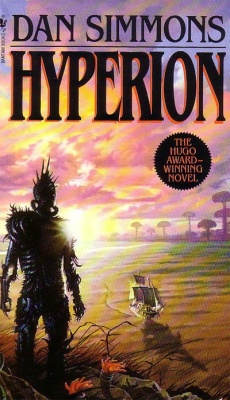
Hyperion is a 1989 science fiction novel by American author Dan Simmons. The first book of his Hyperion Cantos series, it won the Hugo Award for best novel.
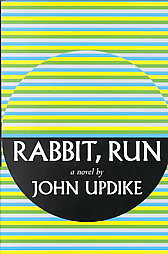
Rabbit, Run is a 1960 novel by John Updike. The novel depicts three months in the life of a 26-year-old former high school basketball player named Harry "Rabbit" Angstrom, who is trapped in a loveless marriage and a boring sales job, and attempts to escape the constraints of his life. It spawned several sequels, including Rabbit Redux, Rabbit is Rich and Rabbit at Rest, as well as a related 2001 novella, Rabbit Remembered. In these novels, Updike takes a comical and retrospective look at the relentless questing life of Rabbit against the background of the major events of the latter half of the 20th century.
Make Room can stand for several things:
"Welcome to the Monkey House" is a Kurt Vonnegut short story that is part of the collection of the same name. It is alluded to in God Bless You, Mr. Rosewater as one of Kilgore Trout's stories.
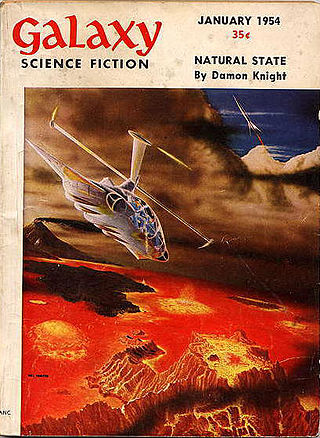
"Tomorrow and Tomorrow and Tomorrow" is a short story by Kurt Vonnegut originally written in 1953. It was first published in Galaxy Science Fiction magazine in January 1954, where the story was titled "The Big Trip Up Yonder", which is the protagonist's euphemism for dying. A revised version bearing the title "Tomorrow and Tomorrow and Tomorrow" appeared in Vonnegut's collection of short stories, Canary in a Cat House (1961), and was reprinted in Welcome to the Monkey House (1968). The new title comes from the famous line in Shakespeare's play Macbeth starting "Tomorrow and tomorrow and tomorrow".
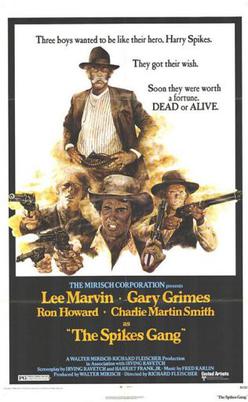
The Spikes Gang is a 1974 American Western film directed by Richard Fleischer and starring Lee Marvin. Produced by the Mirisch Company and based on the novel The Bank Robber by Giles Tippette, the supporting cast features Gary Grimes, Charles Martin Smith and Ron Howard. Veteran character actors Arthur Hunnicutt and Noah Beery, Jr. both appear in separate "scene-stealing" performances.

Freedom is a 2010 novel by American author Jonathan Franzen. It was published by Farrar, Straus and Giroux. Freedom received general acclaim from book critics, was ranked one of the best books of 2010 by several publications, and called by some critics the "Great American Novel". In 2022, it was announced that Freedom would be adapted for television.
William Ferdinand Brown was an American playwright, best known for writing the book of the musical, The Wiz (1974), which is an adaptation of L. Frank Baum's The Wonderful Wizard of Oz with music and lyrics by Charlie Smalls, for which Brown received a nomination for the Tony Award for Best Book of a Musical.
Harry Harrison is a British born political cartoonist and illustrator based in Hong Kong. He is best known as the principal political cartoonist for the South China Morning Post (SCMP). However, he also illustrates children's books and provides satirical cartoons to many journals in the South China area.

Soylent is a set of meal replacement products in powder, shake, and bar forms, produced by Soylent Nutrition, Inc. The company was founded in 2013 and is headquartered in Los Angeles, California.
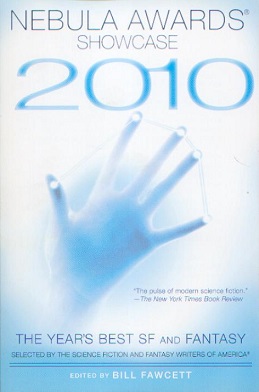
Nebula Awards Showcase 2010 is an anthology of award-winning science fiction short works edited by Bill Fawcett. It was first published in trade paperback by Roc/New American Library in April 2010.
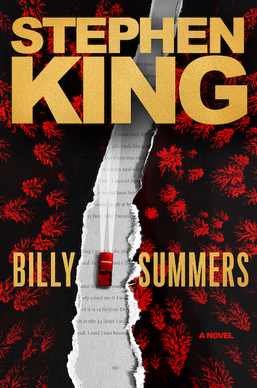
Billy Summers is a crime novel written by American author Stephen King, published by Scribner on August 3, 2021.
